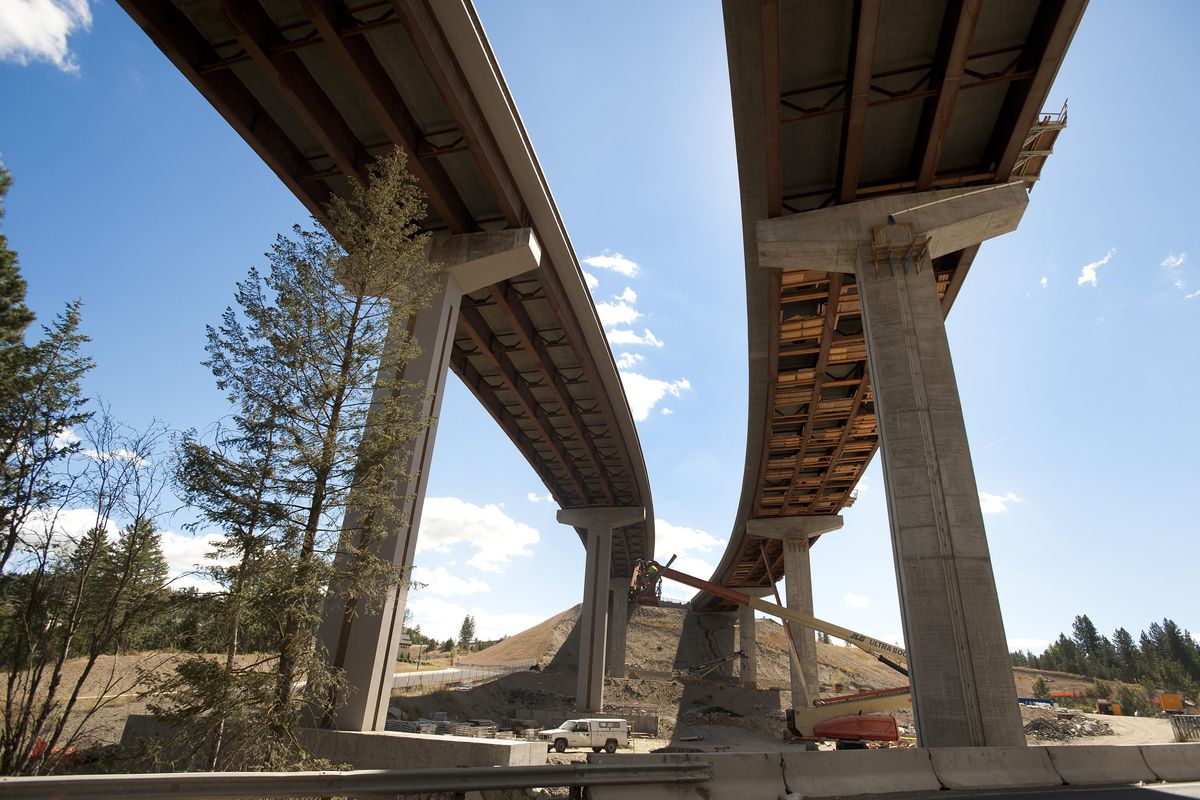City prepares for next phase of north-south freeway: Water, sewer infrastructure

Spokane will spend $15 million in state highway funding to build, move or protect city-owned water and sewer pipes ahead of construction of the long-awaited north-south freeway.
The work will at first focus on the area between Rowan Avenue and the Spokane River, where the city has identified 12 projects, including the relocation and new construction of sewer and water pipes.
“Wherever the freeway is going over our infrastructure, we have to upgrade it and protect it,” said Louis Meuler, a city planner who is working on the freeway project. “There are several older water and sewer lines there. This money will help the city pay for the infrastructure, for planning, upgrades and protection.”
The $15 million comes from the 2015 Connecting Washington transportation funding package, a $16 billion package funded through an 11.9-cent tax on every gallon of fuel that devoted a total of $879 million toward the Spokane freeway project.
The freeway, officially called the North Spokane Corridor, was first conceived in 1946 and, thanks to the 2015 funding, is expected to be completed in 2029. In all, the $1.5 billion project will have received $140 million in federal money and nearly $1.4 billion from the state.
“The state’s been ramping up, and the city’s been ramping up,” Meuler said. He added the city is considering constructing empty conduit in some locations for the future use of stormwater, water and sewer lines.
The first phase of the work will take place on Euclid Avenue this summer. Rowan and Wellesley avenues will also see utility work beneath the pavement, but the project will mainly affect the streets from Bridgeport to Montgomery avenues.
The state money put aside for city utilities will also be used for similar work south of the river to the freeway’s eventual connection to Interstate 90.
Residents and commuters in northeast Spokane will experience major impacts to their roads, most notably on Wellesley. The major road will be closed beginning in the summer for three years while state crews build an interchange with the freeway. The interchange is anticipated to be open by the end of 2022.
Francis, Euclid and Carlisle avenues, as well as Upriver Drive will remain open during and after construction. But Euclid between Market and Ralph streets will be temporarily closed, allowing for utility work and the creation of a new railroad crossing. Sections of Bridgeport, Fairview, Cleveland, Grace, Marietta and Jackson avenues will be permanently closed to make way for the freeway.
When complete, the 10.5-mile highway is expected to carry 150,000 vehicles a day, comparable to I-90. Since construction began in 2001, 606 pieces of property have been purchased by the Washington Department of Transportation and 533 buildings demolished. As of June, 119 properties remained in the freeway’s path.